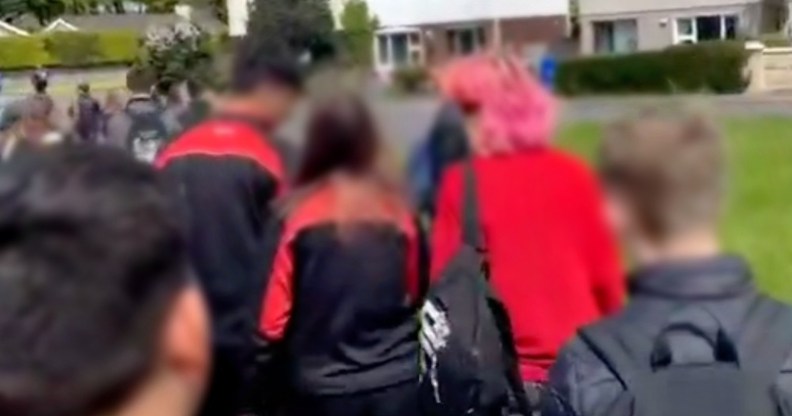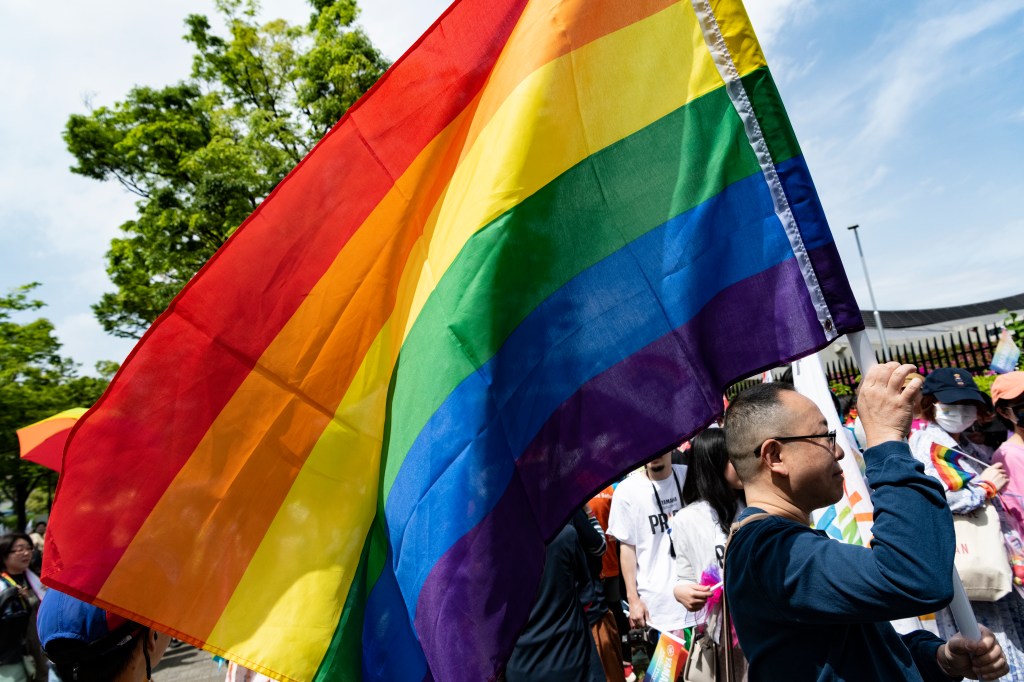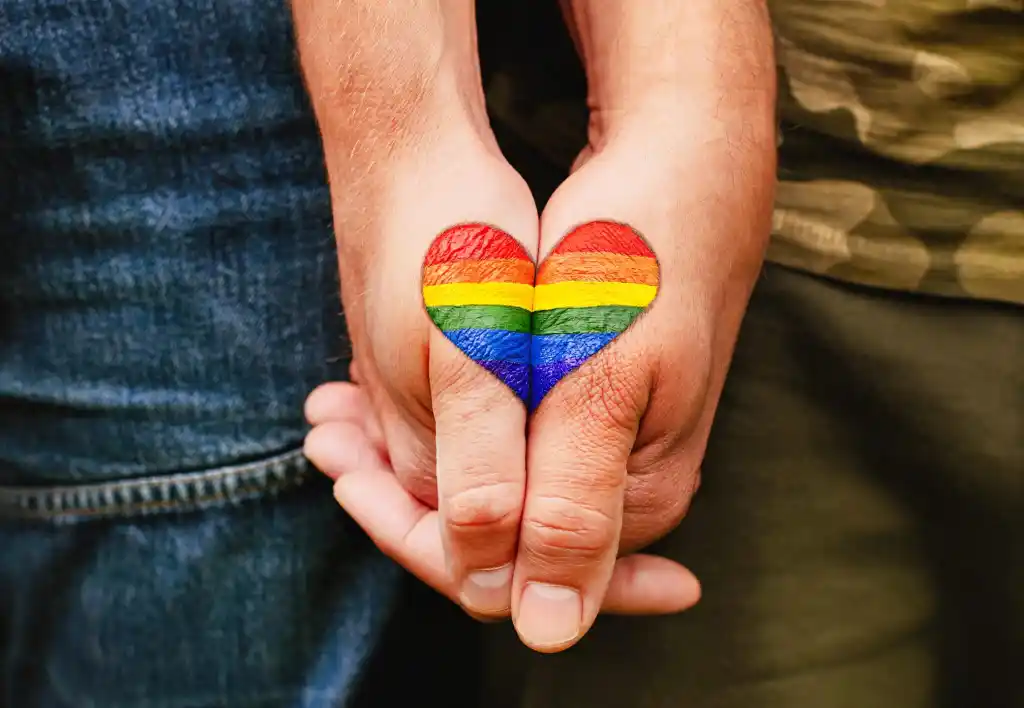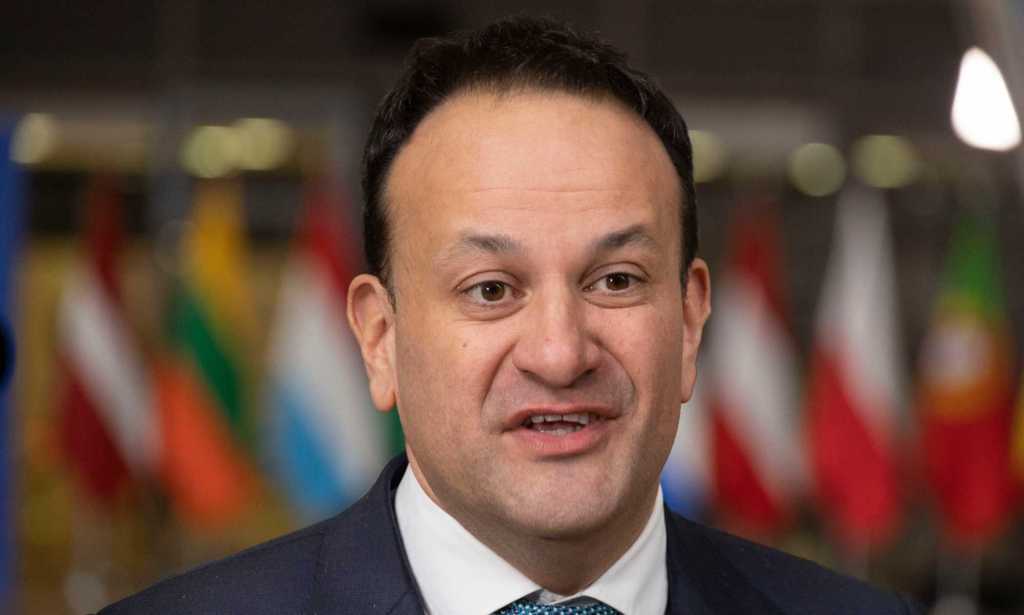Brutal attack on gay schoolboy, 14, shows how society is lurching backwards

Irish police have confirmed that teens were released without charge over the vicious beating of 14-year-old schoolboy. (Twitter)
Irish police have confirmed that teens were released without charge over the vicious beating of 14-year-old schoolboy. (Twitter)
Ireland’s LGBTQ+ community has been left devastated and horrified after a video of a teenager being brutally assaulted was circulated on social media.
In the clip, which was shared on Twitter on Tuesday (16 May), boys in school uniforms can be seen violently attacking one of their peers in the green area of a housing estate in Navan, County Meath.
Claims quickly circulated online that the teenager was attacked because of his sexuality. A family member of the victim told PinkNews that he was left with two broken teeth and swelling “all over his head”.
The child, who is reportedly just 14-years-old, was subsequently hospitalised. Three juvenile males have been arrested for alleged offences under Section 3 of the Non-Fatal Offences Against the Person Act 1999.
Gardaí have recorded the assault with a hate motivation based on the international McPherson test, which is a perception based test introduced in 2019 as part of the force’s diversity and integration strategy.
It’s still early days and there’s much that’s still unknown about the attack, but for Ireland’s LGBTQ+ community, it’s indicative of deeper problems. There have been a spate of high-profile hate crimes over the last couple of years, from the murder of two gay men in Sligo, to brutal assaults outside gay bars.
It’s been eight years since Ireland’s history-making same-sex marriage referendum. It was supposed to be a moment of change – a chance for Ireland to distance itself from its past and move forward – but it’s now clearer than ever that LGBTQ+ people are still, quite simply, not entirely safe.

For Navan’s LGBTQ+ community, it’s a heartbreaking moment. Patrick Lawlor, co-chair of Navan Pride, says he’s noticed more and more queer people feeling able to express themselves openly and without fear in the town in recent years.
“Now obviously you’ll see there will be some incidents in pubs where you’ll have some eejit who might say something, but overall I think there’s a high tolerance for LGBTQ+ people in terms of socialising in the town,” he says.
Even so, he says most queer people in the town probably wouldn’t feel comfortable kissing their partner or holding hands in a pub.
“I know there is a fear there among other people. We’re not going to be there until the sense of difference or the sense of shame is eradicated, so that’s why we need Pride. We’ll always need a Pride until there is that sense of just feeling OK with who you are out in public.”
Pádraig Rice, policy and research manager at LGBT Ireland, says the footage – which Gardai have asked people to stop sharing – was “really tough to watch”.

“To echo what the taoiseach said, things really do get better and things do improve, but we need to tackle some of the underlying causes of this violence.”
Hate crime has been on the rise in Ireland in recent years, and each one of those incidents has an effect not only on the individual, but on the wider community.
“What’s important to remember is that hate crimes are signal crimes – they send out a signal to an entire community that you are unsafe. As a result hate crimes hurt us all. They increase fear.
“What we’ve been seeing through community reporting and through Gay Community News (GCN) is that every month there are reports of very serious attacks on members of the LGBT community. People leaving gay bars, people being robbed and attacked on the streets. We’ve seen some very violent incidents as well.”
To make matters worse, Ireland still doesn’t have adequate hate crime legislation. There’s a bill currently making its way through parliament, but until it’s law, victims won’t have the full protection they need.
However, Rice also points out that hate crime legislation isn’t a silver bullet – more needs to be done to stamp out homophobia and transphobia all across Irish society.

“We want to see is a national action plan against hate crime. We want to see every government department and every agency of state take a role in preventing and reducing hate crimes.
“That means better training for everyone involved in the criminal justice system, but we also want to see more community police who work to build up trust with affected communities and work with us on these issues.”
Rice notes that incredible progress has been made in Ireland over the last 30 years, from the decriminalisation of homosexuality to marriage equality and gender recognition – but that doesn’t mean homophobia has gone away.
“I often say, we’ve won the right to walk down the aisle, but we still look over our shoulders as we walk down the street.”
Adam Long, board director of the National LGBT Federation (NXF), says the incident in Navan is yet another reminder of how important it is that the government takes meaningful action to combat hate crime.
“It should be a clarion call for making sure we have really robust legislative and criminal justice responses,” he says.
Anyone who has witnessed or experienced a hate crime is urged to call the police on 101, Crimestoppers anonymously on 0800 555 111 or visit the True Vision website. In an emergency, always dial 999.

